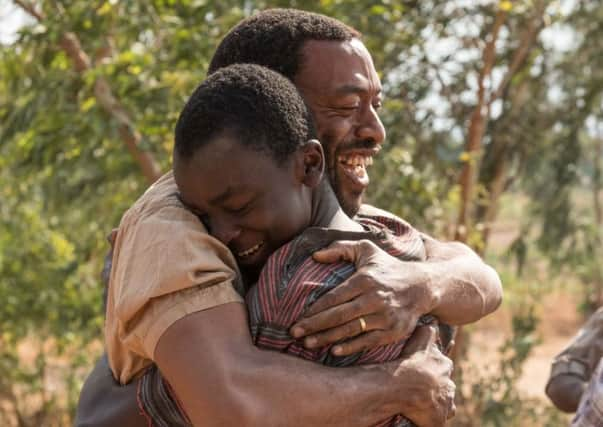Actor Chiwetel Ejiofor on his directorial debut


The Boy Who Harnessed The Wind, based on the the bestselling book by William Kamkwamba and Bryan Mealer, is not only his directorial debut, but he also stars in the moving film.
The inspiring true story, which premiered at the Sundance film festival in late January, follows 13-year-old William Kamkwamba (played by newcomer Maxwell Simba).
Advertisement
Hide AdAdvertisement
Hide AdAfter he’s thrown out of the school he loves when his family can no longer afford the fees, he manages to sneak back into the school library.
And he finds a way, using the bones of the bicycle belonging to his father Trywell (portrayed by Ejiofor), to build a windmill, which then saves his Malawian village from famine.
Ejiofor, who was born in Forest Gate to Nigerian parents and grew up visiting his family in villages much like William’s, bought the film rights after reading the book in 2010, developing it over the best part of a decade.
Explaining what drew him to the story, he says: “The cultural history of where the subjects are from and their dynamics in and around this landscape are beautiful, cinematic and fascinating.”
The star was 19 and attending the London Academy of Music and Dramatic Art when he was cast in his debut film, Amistad, by Steven Spielberg.
His profile has risen thanks to roles in films such as 12 Years A Slave, which earned him an Oscar nomination for best actor.
When it comes to the move behind the camera, he says he was always “interested in directing, but at a distance”.
“And also actually with writing as well, there was something kind of recreational about the way that I was approaching writing, which was I’d written a couple of films but I hadn’t really pursued an aggressive form of development of those films,” he adds.
Advertisement
Hide AdAdvertisement
Hide AdHaving only experimented with making short films previously, it felt right to take the plunge into full-length features with The Boy Who Harnessed The Wind.
But he didn’t exactly pick the easiest story to bring to life.
In William’s community, the people speak a mixture of a local language called Chichewa and English.
To make the film truly authentic, Ejiofor decided to work Chichewa into the script when it seemed most natural for the characters to speak it.
This made for an intense filming process for him and the rest of the cast, as they had the task of learning a whole new language.
“Sometimes you’ve just got to go for it,” he reasons, when discussing how difficult this element of the role was.
“And actually it gets a bit of wind behind you. It’s harder to do things by halves, in a way... You’re not fully invested, so you get bogged down by the self-doubt and not knowing why you’re doing it and what choices you’re making.”
He continues: “I wanted to have an authentic experience, but that meant shooting in Malawi was going to be really important. And if shooting in Malawi was going to be really important, then it felt like shooting it in a Malawian language was going to be very important.
Advertisement
Hide AdAdvertisement
Hide Ad“Trying to find the right people to play the parts, and people and actors who are going to be engaged with all the complications of Chichewa and doing it in that way, felt a natural part of the process.”
Ejiofor has worked with some incredibly successful directors throughout his career – Steve McQueen for 12 Years A Slave, Alfonso Cuaron for Children of Men, Stephen Frears for what was arguably his breakout role, in thriller Dirty Pretty Things, and, as mentioned earlier, Spielberg right at the start of his career.
But while they have all been “deeply inspirational”, he stresses there must be a balance on set of trying to find your own voice with a film too.
“If you are trying to borrow somebody else, then the film is going to feel like you’re trying to borrow somebody else,” he elaborates.
“In the end it is about trying to be honest, and to be honest to yourself and whatever your strengths are but also to what your weaknesses are, and to ‘fess up to them and try and navigate them, because all of it is very raw on screen.
“It’s a very transparent medium and it really does expose the director, it exposes the writer, it exposes the actor. It’s very brutal as a format. So, you’ve just got to be as truthful to yourself as you can be.”
The Boy Who Harnessed The Wind is available on Netflix from tomorrow